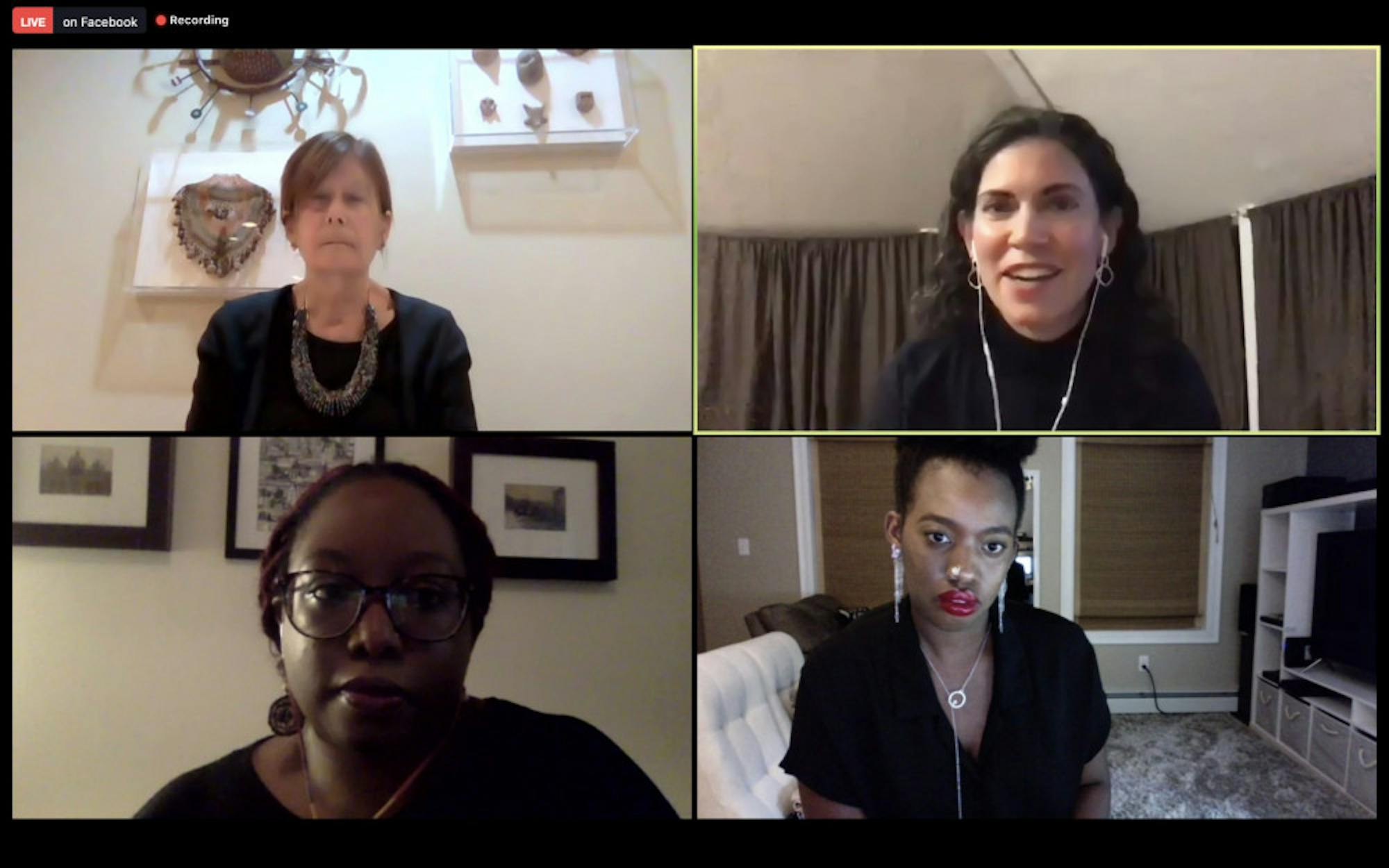The Fletcher School of Law and Diplomacy’s sixth annual Conference on Gender and International Affairs hosted a virtual panel titled Feminist Foreign Policy on Oct. 14. In this second installment of the conference’s fall webinar series, panelists Jamille Bigio, Dr. Toni Haastrup and Judicaelle Irakoze discussed how feminist foreign policy is constructed and implemented.
Stephanie Foster, co-founder and partner at Smash Strategies, moderated the event. She opened the discussion by asking the panelists about how they formulate feminist foreign policy.
“Women's rights is a very necessary, but an insufficient condition for feminist foreign policy,” Haastrup, a senior lecturer in international politics at the University of Stirling in Scotland, said. "Feminist foreign policy must be emancipatory — it must be intersectional.”
Judicaelle Irakoze, founder and executive director of the organization Choose Yourself, spoke about the importance of viewing feminism outside of gender.
“[I want to] think of feminism as a tool that allows us to critically analyze even outside of gender ... other issues that may appear separate ... by collective, like race, classism and power imbalance,” Irakoze said.
Foster then asked each panelist what feminist foreign policy looks like in practice.
Jamille Bigio, a senior fellow in the Women and Foreign Policy program at the Council on Foreign Relations,observed a disconnect between many countries’ outward embrace of feminist initiatives and their failure to implement substantive policies. Despite compelling data on the positive effects of increased gender equality on economic growth, the strengthening of democracy, improved community health and more, she noted that institutions continue to dismiss this notion.
"If [institutions] truly unlocked the potential of half the population as partners and allies in that work ... [they] would see different results," Bigio said.
Irakoze identified another dimension of the international community’s failure to adequately address issues of gender equality.
“Women and girls come in different layers,” she said. “The needs and the struggles of women in a refugee camp are very different [from] the needs …and everyday struggles of women in a capital city.”
She argued that given the spectrum of challenges faced by women in different circumstances globally, the solutions should be just as specific and diverse in order to attain a feminist foreign policy.
Foster also asked whether the United States, the European Union or the African Union will ever adopt a feminist foreign policy.
The speakers described several barriers to the implementation of a true feminist foreign policy, including the divisiveness of the term “feminist,” the complexity of multinational structures like the European and African Unions and the presence of conflicting policy goals that preclude countries from embracing certain policies.
Bigio cited a Georgetown Institute for Women, Peace and Security study to demonstrate that the United States has failed to achieve women's rights domestically.
"[The study] found that maternal mortality rates in Louisiana are as high as they are in Libya; that in West Virginia, [women make up] the same percentage of state legislatures [as in] Burkina Faso,” she said.
These statistics would reduce the United States' credibility even if it did choose to champion feminist policies on the world stage, according to Bigio.
Haastrup spoke about the current climate surrounding feminist foreign policy.
“It would be remiss not to mention the fact that we are currently living in the midst of a massive anti-gender backlash,” she said.
Finally, the panelists addressed the common characterization of feminist foreign policy as being overly radical. Irakoze rejected this criticism and advocated for increased pressure on institutions of authority.
“I think we should push for more, because we deserve a world full of peace and security for women and girls,” she said.
This determination to continually push for progress, despite systemic injustices and structural barriers, was echoed throughout the seminar.
The Fletcher School’s Conference on Gender in International Affairs will host two more virtual seminars this fall: Bodies of Resistance on Nov. 18 and The Politics of Appearance on Dec. 9.






